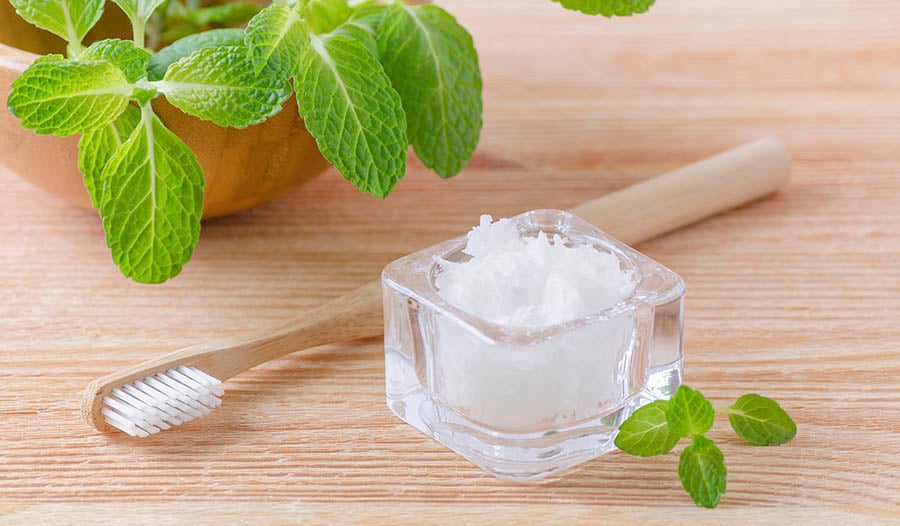
What Is Oil Pulling?
Oil pulling is an age-old practice in Ayurvedic medicine to promote oral and systemic health, gaining popularity and scientific validation.
Oil is pulled and forced between all teeth in the swishing process to remove unwanted plaque, bacteria, and cellular debris from the oral cavity to create a healthier oral environment.
Oil pulling is revered in Ayurvedic medicine as an essential health practice. It makes sense because, in many respects, the mouth mirrors the general health of the human body. If we can improve oral health, it leads to improved overall health.
Oil pulling may effectively improve the oral microbiome. The oral cavity is host to billions of microorganisms, and it is well-established that some of these microbes can contribute to the development or progression of systemic diseases, heart disease, autoimmune disorders, and many more.
Maintaining oral health is critical to maintaining overall health. Oil pulling may be a simple and effective practice to promote optimal oral and general health.
How To Oil Pull
- Take approximately one teaspoon to one tablespoon of coconut or other edible oil.
- Hold it in your mouth.
- Swish it through the teeth for between five and twenty minutes first thing in the morning before brushing the teeth.
- Spit the oil out, being careful not to swallow any oil.
- Brush teeth.
Benefits of Coconut Oil Pulling
Oil pulling can use any edible oil, but coconut oil may offer the most significant benefit for many reasons. Approximately 50% of the fatty acids in coconut oil are lauric acid, a medium chain (12-carbon) saturated fat.
The only other abundant source of this health-promoting fat in nature is human breast milk. In the mouth and gastrointestinal tract, lauric acid is converted into a highly beneficial compound called monolaurin. Another fat in coconut oil, capric acid, is converted to monocaprin.
Both compounds have demonstrated significant antimicrobial effects that destroy various disease-causing organisms. That is a very beneficial action within breast milk, but it may also be of benefit via coconut oil.
Many viruses, bacteria, and protozoa (parasites) are enveloped by a protective membrane composed of lipids (fats). Current research indicates that monolaurin and monocaprin dissolve the lipids in the fatty envelope surrounding these microbes. They disintegrate the protective shield causing them to be easily destroyed by the immune system. Bacteria inactivated by monolaurin include the bacteria linked to cavities and gum inflammation. It also helps fight the overgrowth of the yeast Candida albicans. In one study, researchers found that all Candida species were 100% susceptible to coconut oil.
One study also looked at the effect of oil pulling with coconut oil in a randomized, controlled clinical trial with 60 subjects. The subjects were divided into three groups:
- Group A subjects rinsed their mouth in the morning with 10 ml of coconut oil for ten minutes.
- Group B subjects rinsed their mouth in the morning with 5 ml Chlorhexidine mouthwash for one minute.
- Group C subjects rinsed their mouth in the morning with 5 ml distilled water for one minute.
The researchers were looking for the effect of the coconut compared to chlorhexidine group on Streptococcus mutans, the oral bacteria linked to cavities. Chlorhexidine is a popular prescription antimicrobial mouthwash. In this study, coconut oil was equal to chlorhexidine in reducing the S. mutans count in the saliva.
In another study 60 adolescents between 16–18 years of age with gingivitis (inflammation of the gums) due to dental plaque, coconut oil pulling produced significant benefits. There was a 50% decrease in objective measurements of gingivitis and plaque measurement after four weeks. These results are similar to those produced by chlorhexidine. The authors concluded, “Oil pulling has been proven to be an effective method in reducing plaque formation and plaque-induced gingivitis.”
The main advantages of using coconut oil over chlorhexidine are that it is safer and without side effects. Chlorhexidine is problematic because side effects are common and include tooth staining, mouth dryness or irritation, an unusual or unpleasant taste in the mouth, and allergic reactions.
How Long Does it Take to See Results?
Most people feel the difference in how smooth and clean their teeth feel the first time they perform oil pulling with coconut oil. Others may need more time. But even if you don’t see immediate results, continuing the practice is essential.
Originally posted September 2018 / Updated July 2023
https://www.iherb.com/blog/what-is-oil-pulling-and-what-are-the-health-benefits/484
Comments
Post a Comment